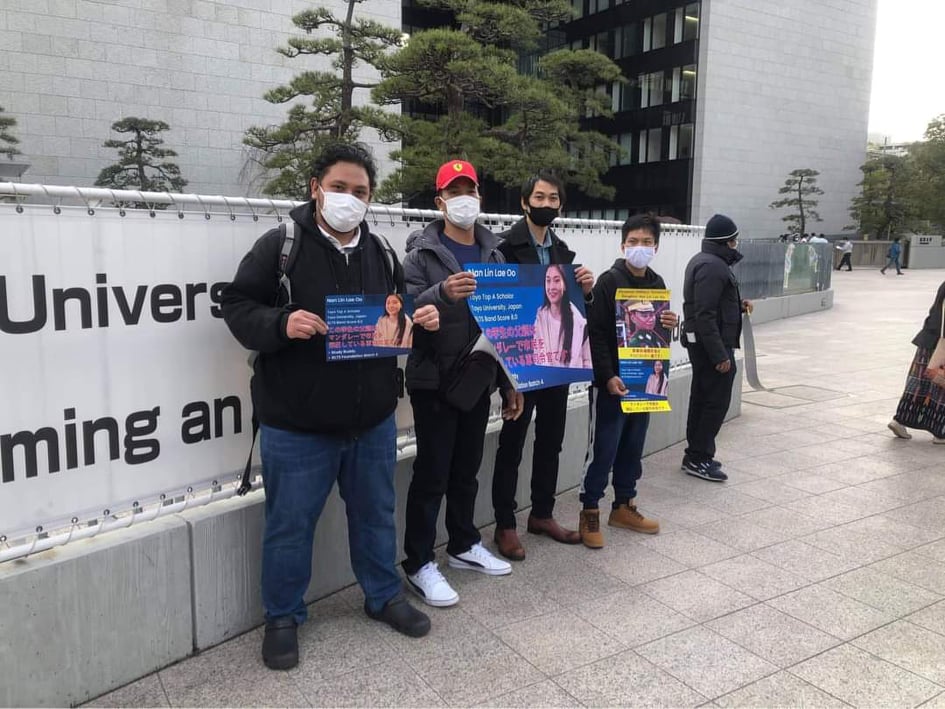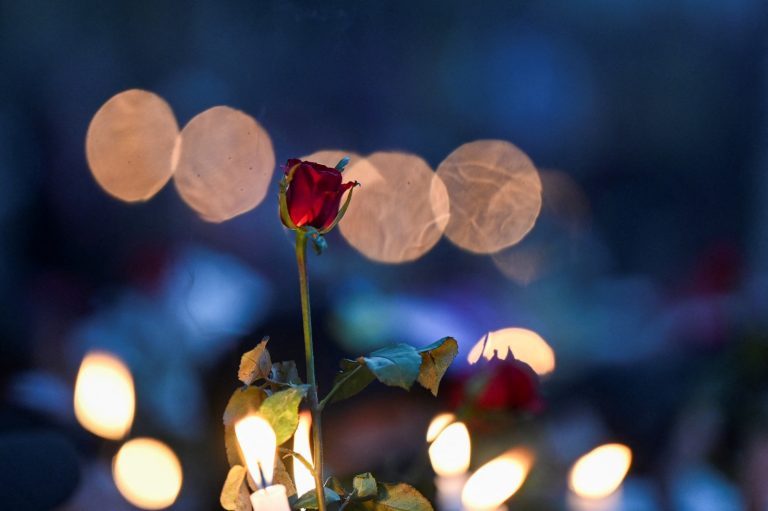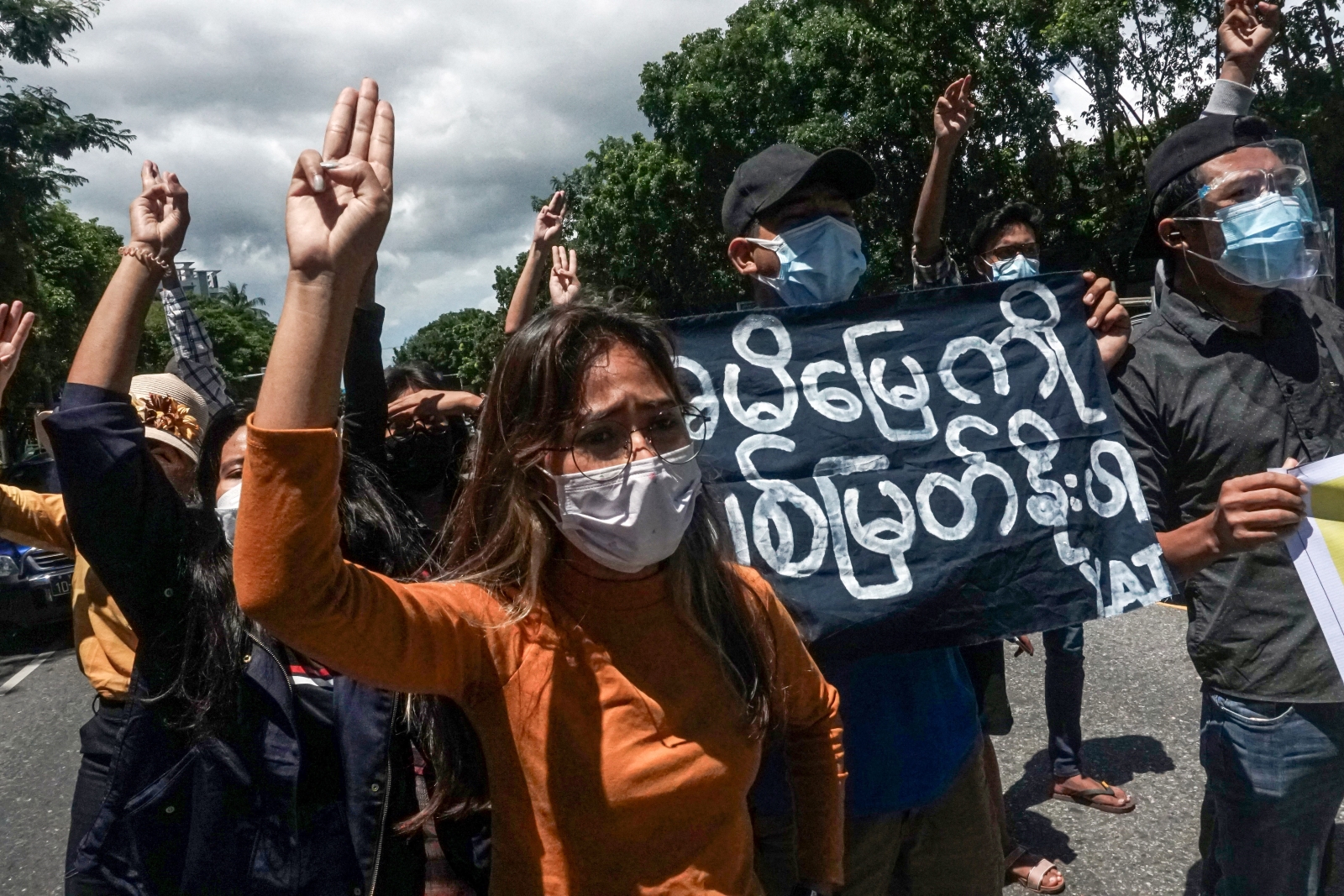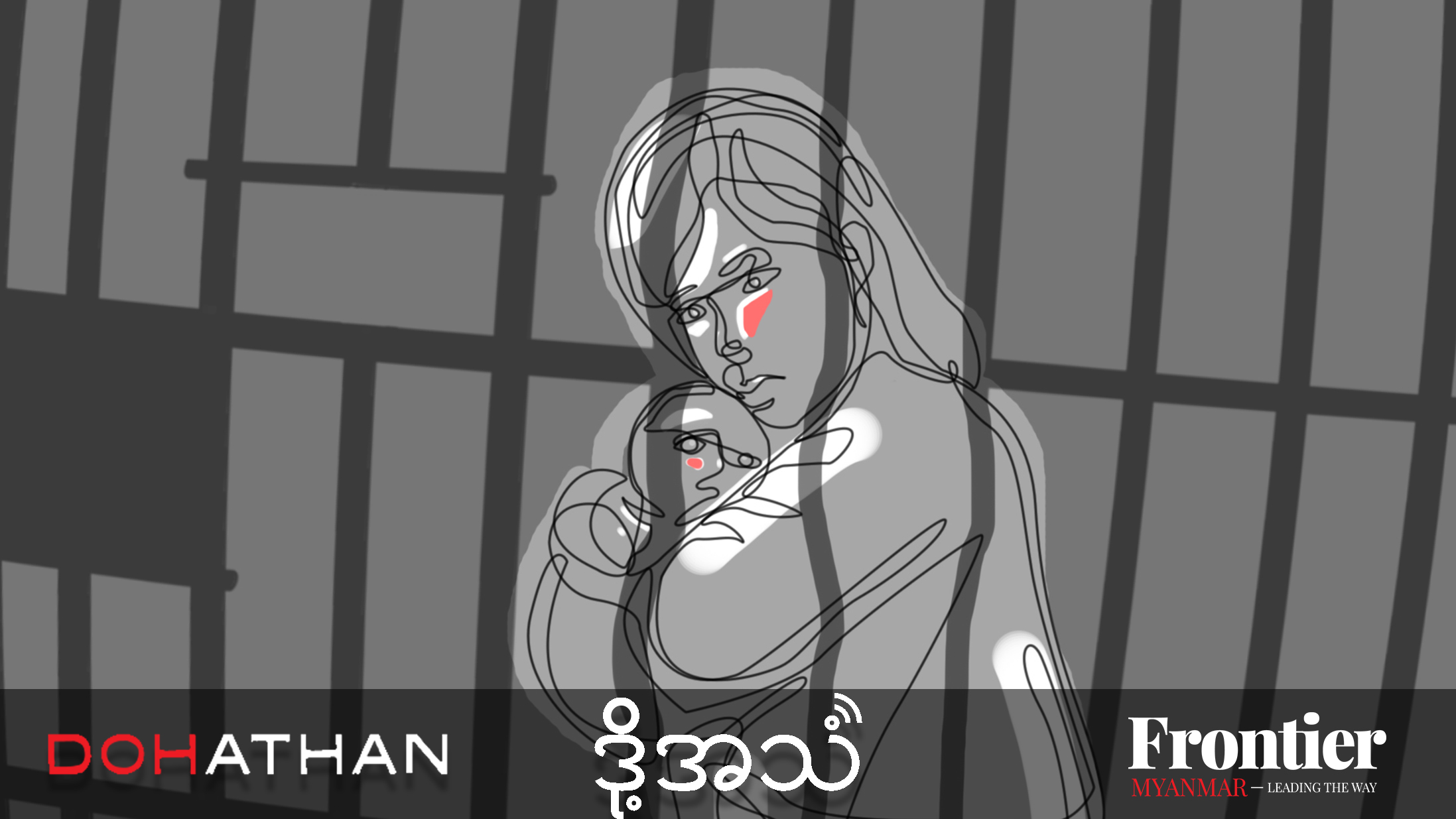Many see a growing online movement to ostracise the families of Tatmadaw generals as retribution for the decades of social exclusion previous juntas have foisted on the families of dissidents.
By SITHU AUNG MYINT | FRONTIER
Myanmar’s Civil Disobedience Movement against military rule has come to take many forms, including a strike by government workers, mass street protests and a public boycott of military-linked businesses. But in recent weeks, a new front has opened in the struggle: a “social punishment” campaign against the families of senior members of the regime.
People have been using social media to identify the relatives of the military generals, announcing where they live, what they do for work, and what foreign universities their children attend. They then urge people to shun and shame the individuals, and to boycott their businesses.
Those targeted so far include Ma Khin Thiri Thet Mon, daughter of Tatmadaw chief Senior General Min Aung Hlaing and founder of the 7th Sense Creation company, a producer of big-budget movies, as well as the senior general’s daughter-in-law, Ma Myo Yadana Htike, founder of the TV soap opera and beauty pageant producer Stellar Seven Entertainment.
Since the military takeover, some of the film and music stars formerly hired by these and other military-linked media companies have said they will no longer work for them.
Activists have also targeted generals’ children who are attending schools and universities abroad, urging both Myanmar expatriates and the natives of those countries to ostracise these students.
Ma Nan Lin Lae Oo, a student of Japan’s Toyo University, is the daughter of General Kyaw Swar Oo, who activists say is responsible for the fatal shootings of peaceful protesters in Mandalay – including 19-year-old Ma Kyal Sin, who has become Myanmar’s most celebrated pro-democracy martyr since her death on March 3. They have called online for the university to revoke Nan Lin Lae Oo’s scholarship, and for the Japanese government to rescind her visa.
These social punishment efforts have been potent, prompting some who’ve been targeted to close their Facebook accounts and keep a low profile. It has led other military-linked celebrities to loudly condemn the coup, either out of conviction or a desire to protect their brands and retain followers. Actress and beauty blogger Nay Chi Oo, who is the daughter of former Tatmadaw officer and businessman U Myo Myint Sein, has publicly backed and donated money to the CDM. She wrote a Facebook post in early February apologising to her father and imploring him to understand her position.
In ordinary circumstances, the campaign’s tactics would probably amount to cyber-bullying, or at least to flagrant invasions of privacy. But these are no ordinary times, and while the ethics of the campaign are open to debate, they must be understood in the context of Myanmar’s long, dark history of military rule. For some former political prisoners and veteran pro-democracy activists, who suffered their own forms of social punishment under the previous junta, the campaign is a form of retribution.
These dissidents were not only imprisoned for years and tortured; after being freed, both they and their families were deliberately marginalised, such that they were often unable to reintegrate into society or advance themselves. Family members in the civil service were dismissed or denied the opportunity for promotion. They were also denied passports, meaning they could not flee abroad, and Military Intelligence pressured school headmasters to not accept their children. Teachers were also urged to discriminate against these children, and their classmates were warned not to interact with them. This ostracism persisted for decades.
Meanwhile, generals and those in their circles, enriched by various forms of corruption, were able to send their children to elite schools and universities abroad. When these children returned home, they often used their parents’ connections and the riches they had looted from the public to establish large businesses in Myanmar.
In contrast, the children of most Myanmar citizens are denied a proper education or economic opportunities, and often end up working for companies owned by the generals and their allies. They feel enslaved to a ruling class of military families.
Now, the people of Myanmar – through the boycott of military goods, acts of civil disobedience and the social punishment campaign – are fighting back. Myanmar Buddhists view the public shaming as karmic retribution for the generals’ evil deeds.
In a just society, no child should have to pay for the sins of their parents, but this campaign is the natural product of decades of injustice and resentment. This harmful legacy can only be overcome if military dictatorship ends and democracy and human rights are allowed to flourish in Myanmar.







